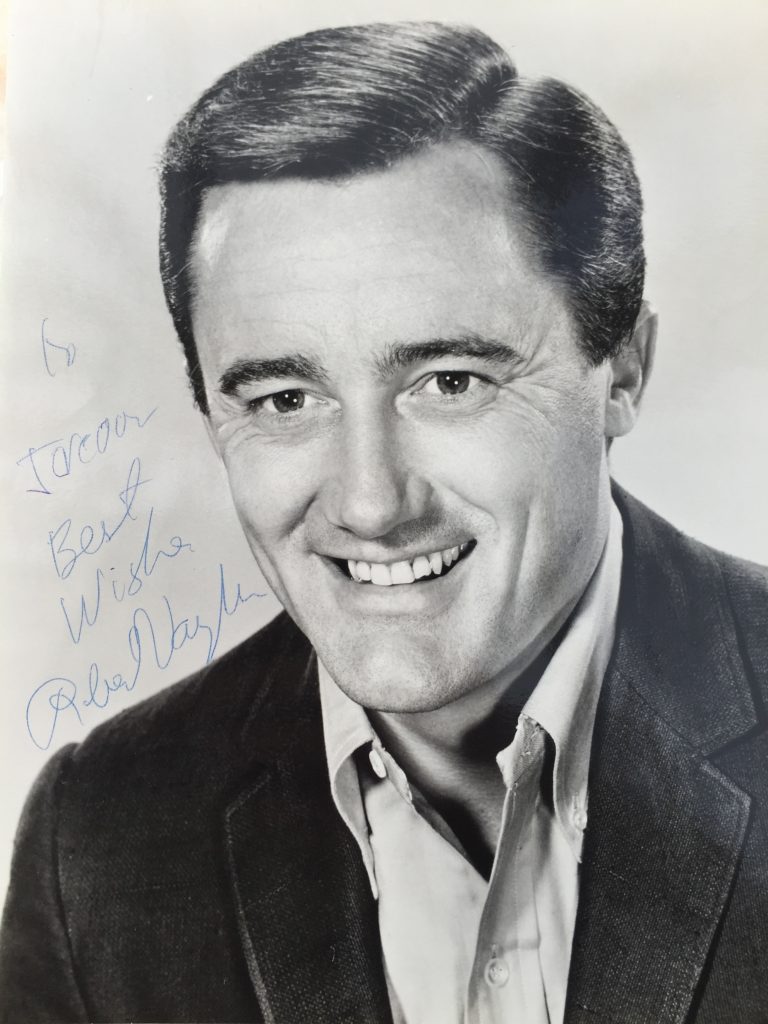
Robert Vaughn obituary in “The Guardian” in 2016.
Many actors opt for long-term employment in television series, only to find their lucrative association with a “personality” difficult to shake off. Robert Vaughn, who has died aged 83, overcame that problem in not one but seven long-running TV series, beginning with The Lieutenant in 1963.
By far the most substantial of these was The Man from UNCLE, in which he played the suave Napoleon Solo, in more than 100 episodes (1964-68) and eight features cobbled together from the series. Eventually, that too ran out of steam (although it remained a cult, particularly in Britain) and he moved on to create the detective Harry Rule in The Protectors, filmed in London through the early 1970s.
He also starred in episodes of Emerald Point NAS (1983-84), and was General Stockwell in the fifth and final series of The A-Team (1986-87). Late in his career, he was appointed Judge Travis in The Magnificent Seven (1998-2000), a TV spin-off from the western film in which he had played the gunslinger Lee 40 years previously.
An astonishingly prolific actor, he guested in hundreds of television shows, from Gunsmoke to Police Woman and from Wagon Train to Law and Order, as well as scores of TV movies and miniseries, including the prestigious Washington Behind Closed Doors (1977), which won him an Emmy.
Vaughn also appeared in some 50 movies, following his uncredited debut as a spear-carrier in The Ten Commandments (1956). In tandem with acting he maintained an interest in politics, campaigning against the Vietnam war from the late 1960s until the US withdrawal from the conflict in 1973, and supported liberal causes as a Democrat and friend of the Kennedys, especially Robert.
Vaughn was born in New York, son of actors, Marcella (nee Gaudel) and Walter Vaughn. He studied journalism at the University of Minnesota, transferring to Los Angeles City College to take drama and to LA State College for a master’s. His PhD thesis on the aftermath of the House Un-American Activities Committee investigation sympathetically examined its effect on members of the acting profession. It was published in 1972 as Only Victims: A Study of Show Business Blacklisting.
Although he did not begin full-time acting until he was in his mid-20s, he started with stage work, television appearances and uncredited screen roles, and was soon cast as the lead in No Time to Be Young (1957), where the influence of James Dean, killed two years before, was apparent. When he played the title role in Roger Corman’s preposterous Teenage Caveman (1958), his character was promoted as a “prehistoric rebel without a cause”. The actor later described it as “one of the best worst films of all time”.Advertisement
It led to an intriguing western, A Good Day for a Hanging (1959), in which he co-starred as a killer who charms the townsfolk into opposing the sheriff who wants him hanged. He got his break in The Young Philadelphians (1959), receiving an Oscar nomination as best supporting actor for his performance as an alcoholic who is framed for murder and defended by a calculating lawyer (Paul Newman).
That drama established Vaughn, but it was The Magnificent Seven (1960) that consolidated his big-screen stardom, four years before he debuted as Napoleon Solo. He played the gunfighter who has lost his nerve and joins the Seven to defend villagers from marauding bandits, simply for the money. In a climactic shoot-out, the jittery coward redeems himself, returning to help his friends in Ixcatlan, and sacrificing his life in the process.
After the tongue-in-cheek The Man from UNCLE series, to which David McCallum as his sidekick Illya Kuryakin contributed a cheery breeziness, the darker-toned Vaughn needed a change and moved back into movies with Bullitt (1968). Cast, in Pauline Kael’s words, as “the slimy Mr Big”, he was memorable as Chalmers, a crooked politician, who is a thorn in the side of the bullish detective (Steve McQueen). He was equally persuasive as the Nazi officer in The Bridge at Remagen (1969) and made a credible Casca in the dull 1970 version of Julius Caesar. He was a bossy senator in The Towering Inferno (1974) and a caring neurosurgeon in The Mind of Mr Soames, bringing his patient (Terence Stamp) out of a 30-year coma with terrifying consequences.
Soon after appearing in René Clément’s last picture, La Baby Sitter (AKA Scar Tissue, 1975), Vaughn was used to devastating effect as the voice of the rebellious computer Proteus in Demon Seed (1977), where his off-screen voice was a coolly intelligent reflection of his often menacing on-screen persona.
In Corman’s Battle Beyond the Stars (1980), he reworked his gunslinger Lee in space, and a year later played a philistine studio executive (allegedly based on Robert Evans) in S.O.B. (1981), Blake Edwards’s blistering attack on Tinseltown. Few such literate scripts or talented directors were available during the later 1980s and 1990s and Vaughn contented himself with guesting as authoritarian figures, including judges, ambassadors and senior army personnel.
Often that was in movie dross, although television was kinder to him in prestige miniseries such as Backstairs at the White House (1979) and The Blue and the Gray (1982) or in lighter material such as Murder, She Wrote.
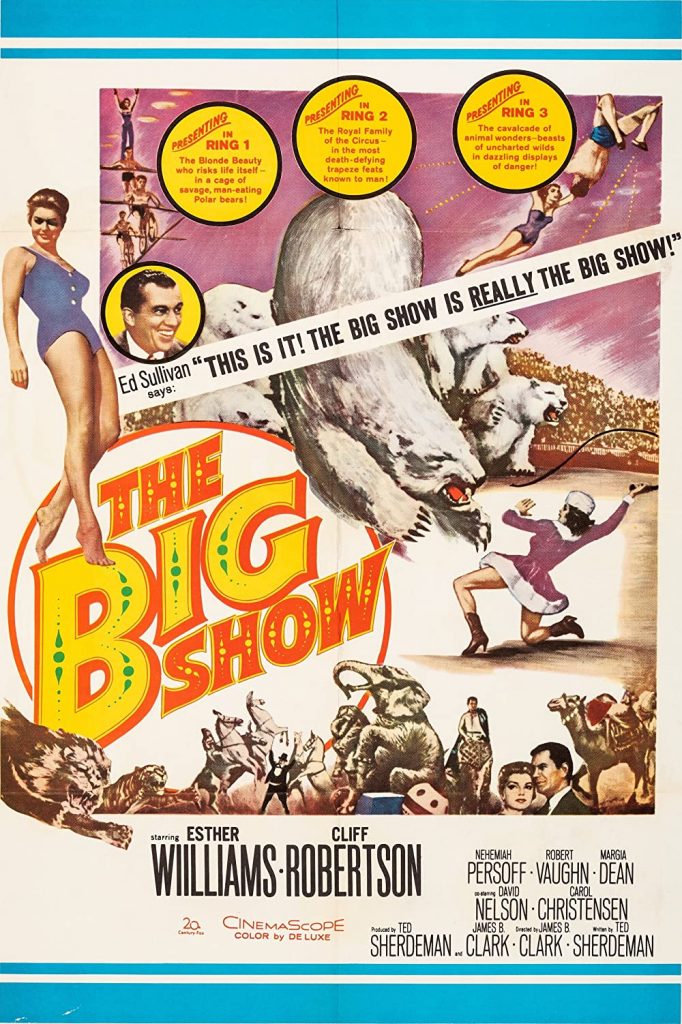
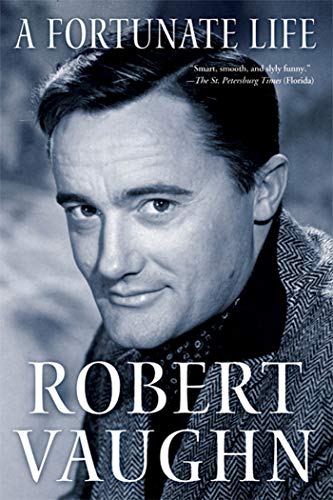
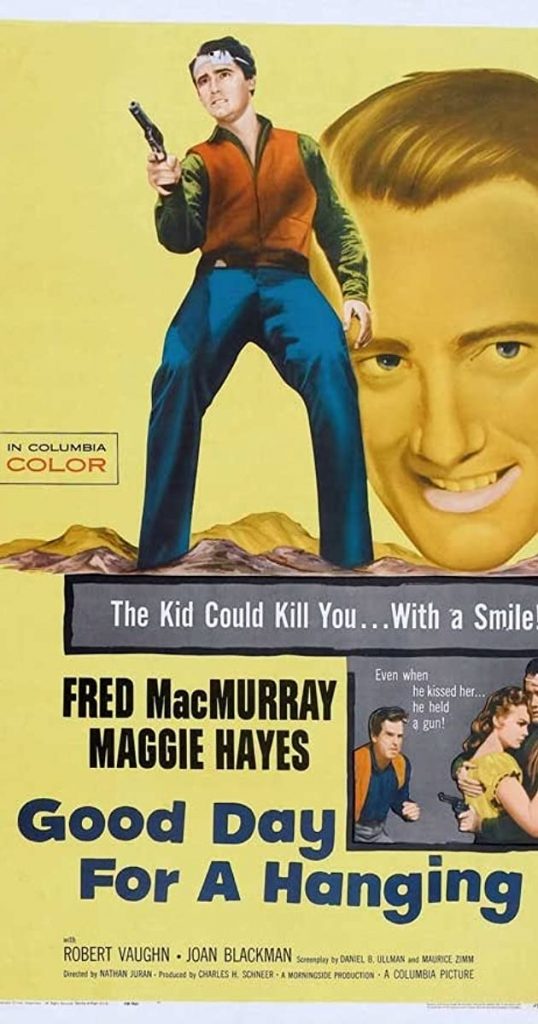
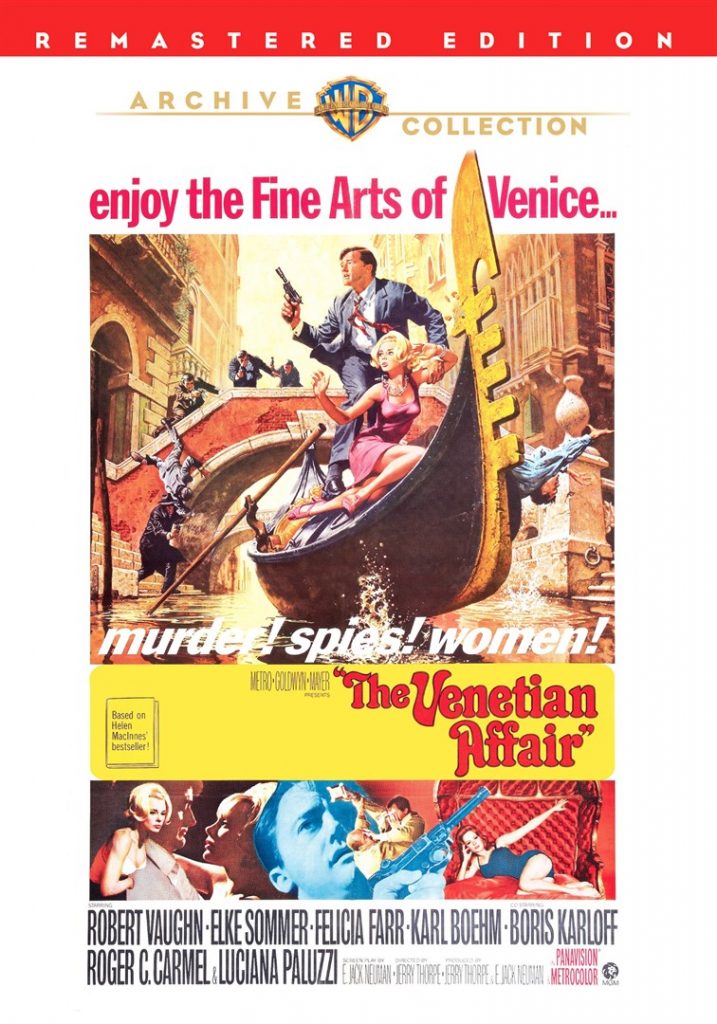
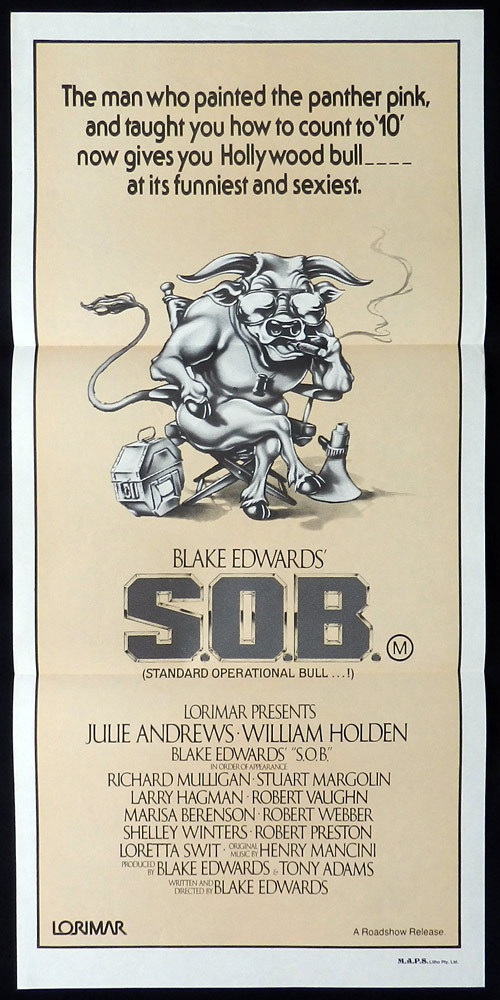
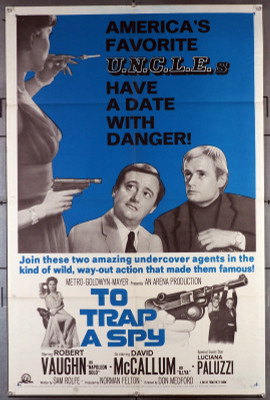
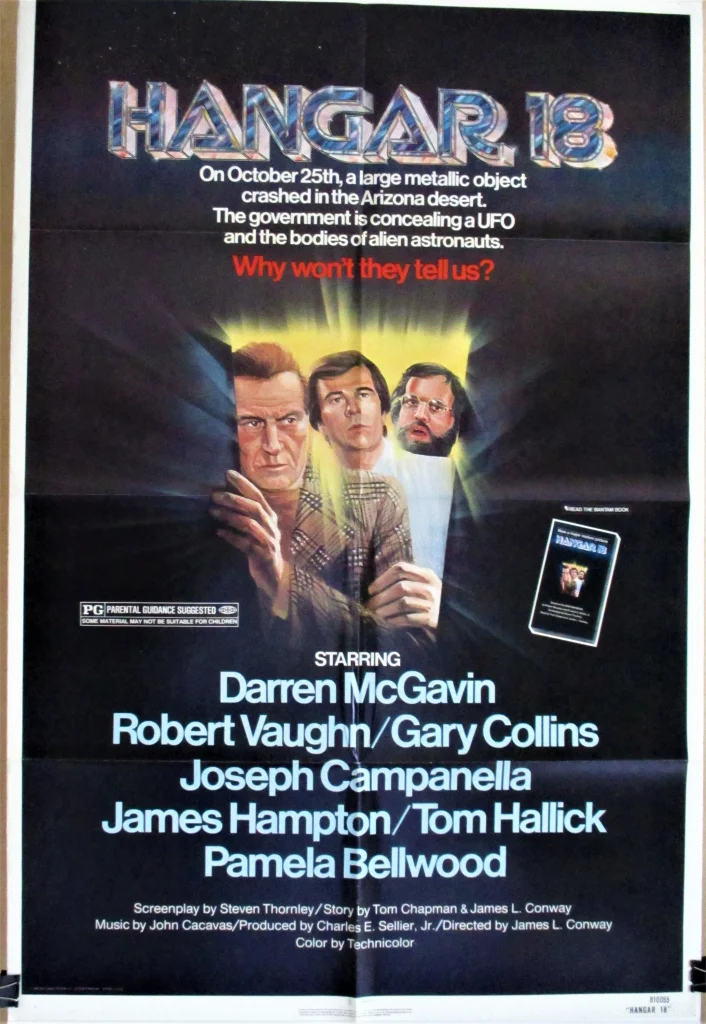
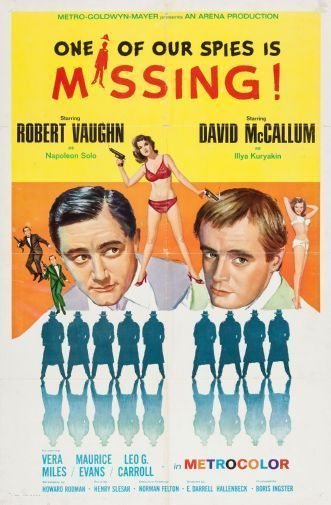
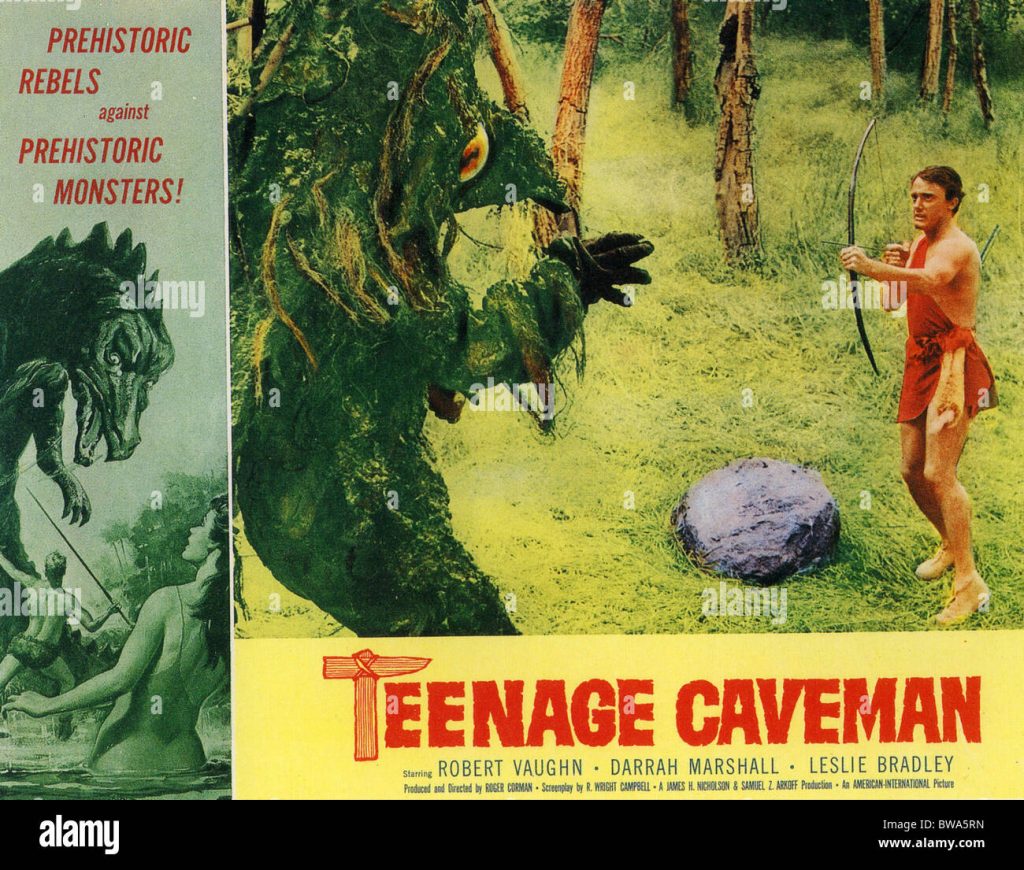
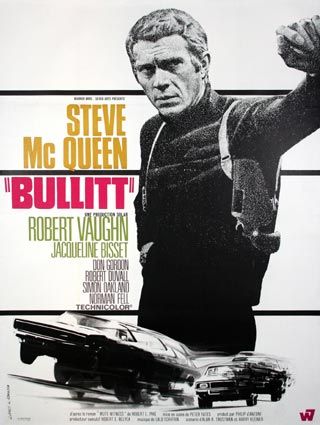
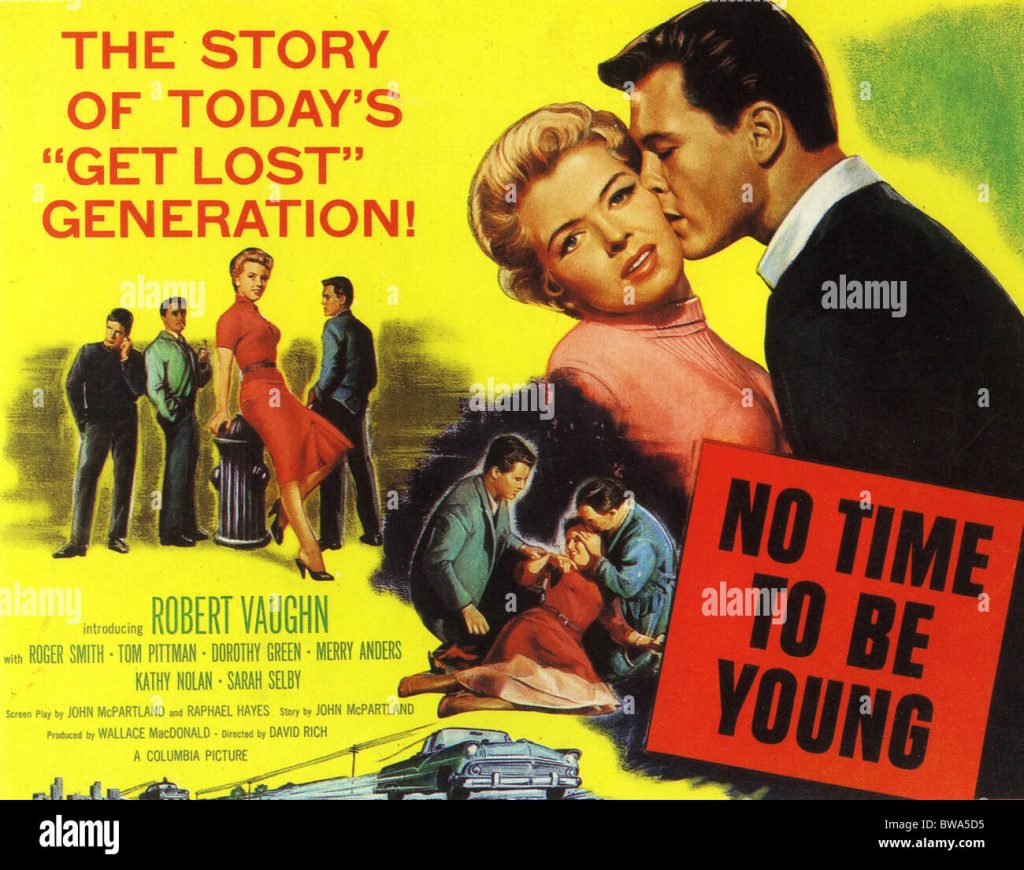
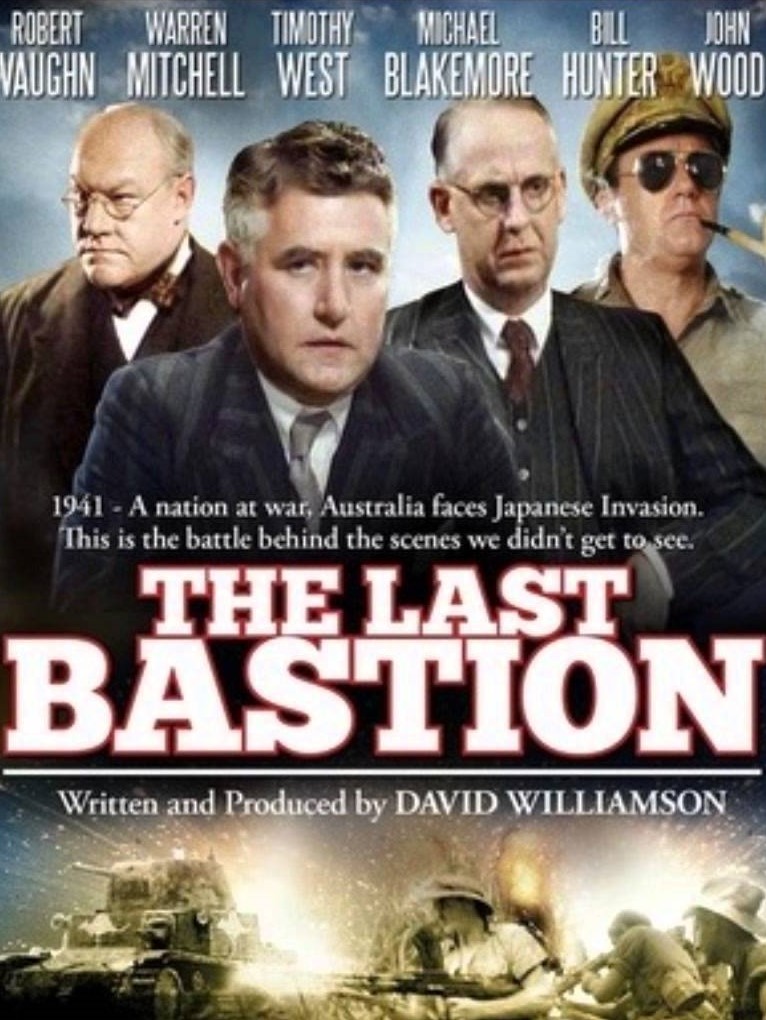
Throughout four busy decades he had reinvented himself as required by age and changing fashion. His early roles as outsiders, troubled lovers, cowards and alcoholics gave way to a mild debunking of his persona, particularly his well-groomed heroes. His somewhat cerebral acting style proved a perfect antidote to spoofs and he established a cult following, partly as the sole redeeming aspect in such later movies as Joe’s Apartment (1996, as a corrupt senator), Motel Blue (1997, as a police chief) and the sports spoof BASEketball (1998).
Despite a steady stream of work, Vaughn announced, aged 70, that he was “going to take it a little easier” and promised to complete his autobiography, tentatively titled, Christ, Shakespeare, Ho Chi Minh: As I Knew Them. This emerged in 2008 as A Fortunate Life and declared his enjoyment of a long and profitable career, his work as a liberal activist (even playing three Democratic presidents on screen) and a happy marriage.
He continued working steadily on television and occasional features, playing a judge in Cottonmouth (2002), villains in Happy Hour (2003) and Hoodlum and Son (2003), and a doctor in Scene Stealers (2004). However, it was in yet another successful TV series that he returned to form. Vaughn starred in 48 episodes of Hustle, produced by the BBC between 2004 and 2012, as the debonair Albert Stroller, member of a disparate group of con artists. Elegant and assured, he showed that he had retained his sense of humour and lack of pretension, something confirmed by his appearance in The Magnificent Eleven (2012), about a football team who go the aid of an Indian restaurant, harassed by local thugs. He had a recurring role, too, in the soap Coronation Street in 2012 as the businessman Milton Fanshaw, love interest of Sylvia Goodwin (Stephanie Cole), mother of Roy Cropper.
Vaughn is survived by his wife, Linda (nee Staab), whom he married in 1974, and their two children, Caitlin and Cassidy.
• Robert Vaughn, actor, born 22 November 1932; died 11 November 2016


